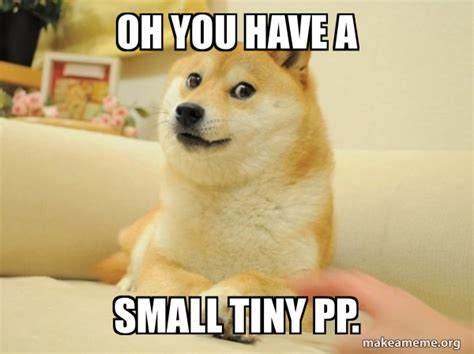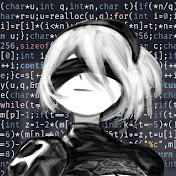Reminder that the reason that GOG is DRM-free and offers offline installers is because it was started by former pirates (in a sense).
If there is a game you love, buy it from GOG and archive the offline installer. If it isn’t available on GOG, pirate it. The number of games that have disappeared is too damn high.
I’d also like to add that the yakuza series used for this picture are great games that now come with DRM, unless you buy them on GOG.
I bought a big bundle of the games through steam on sale and Yakuza: Like a Dragon came with DRM on steam. Buy on GOG, its the same game but DRM free.
I should have waited for the GOG sale, now I might pirate it to play the game I bought without DRM.
I feel like I should know this, as a I’ve been a pc gamer and extra legal aquirer for several decades… But I’m not actually sure what DRM means?
Digital Rights Management, refers to software or hardware that limits access to something unless the user has authorization/licensing.
It’s why you can’t copy someone’s game folder from steam and run it, or burn a PS2 disc and play it on an unmodded console.
Well for games it kind of depends on the specific DRM used and how exactly the game utilities it. DRM means digital rights management but there is a wide variety of DRM and ways it’s used.
Some DRM might limit the amount of computers software can be installed on, some might verify the contents to ensure none of the files were changed, some might authenticate with a server before starting up, and some might have kernel level access to read your RAM and log your keystrokes.
I need to get a couple more external drives and make at least one Faraday cage to keep one in.
All my installers are on a 1tb hdd that sits in my dresser. Made it a lot easier to put my games on my new laptop since they were installed before I even got to hooking it up to the internet.
Beware of bit rot, hard drives are meant to be powered occasionally to hold data. Using a recycled computer as a NAS is a great low cost solution.
powered occasionally to hold data
A bit more detail: simply being powered on won’t necessarily stop that.
You want something checksumming the data and making sure it’s not silently rotting off the disk.
ZFS does this, something like snapraid can do it too, and there’s various other methods of making checksums you can validate data integrity with and be able to repair minor corruption. (PAR files, for example.)
A real-world example of this kind of oops is everyone’s favorite Youtube Tech Personality™ LTT who lost a fuck-ton of data due to not scrubbing data on a ZFS array and had to go through months of restoration to get most of it back, so uh, yeah, make sure you’ve taken steps to detect and correct the bitrot that’s going to happen anyways.
Just as an addition, nothing against ZFS it is a great FS, but BTRFS can this too.
Yeah, that wasn’t meant to be remotely comprehensive: there’s a lot of ways you can do this ranging from the filesystem to what kind of archives you’re storing, to programs that make parity data for validation.
…also, since I haven’t started a flamewar yet today, I don’t think I’d personally use BTRFS. It’s still too new, has had data consistency issues too recently, and just plain doesn’t have the kind of historical performance record for something I’d want to use for archival purposes.
Come back in another decade and we’ll see how it’s been going.
All fair and good arguments, so no flamewar today. Sorry 😜
I know SSDs need to be powered on occasionally due to how they store data, which is why (also due to cost lol) I have most of my stuff on HDDs, though I know those can have issues if you leave them out unprotected.
Not much more I can do without spending a lot more money than I have already. But so far I’ve never needed to get my second backup.
Which reminds me I need to re-backup the second drive…
You only have 1tb of installers?
Removed by mod
Looking through your comment history, you’re a terrible troll. Either get good or knock it off.
The username is some of the worst bait I’ve seen lmao
Removed by mod
Removed by mod
Exactly. And that’s why you’re a terrible troll.
man, I remember when I tried to be a troll on reddit. it was pretty pathetic lol
im glad I found people to talk to and friends that care about me, trying to make people upset on the Internet just kept me feeling empty.
sorry we aren’t losing our shit and giving you the satisfaction you want, but just know there’s always help for you out there :)
😂and I interpreted it as a real compliment and wondered why thei gets downvoted
Removed by mod
Removed by mod
Copyright should only exist if the entire work, including the entire code base, is held in escrow by the copyright office.
If you don’t do that, you don’t get protection. This is literally the reason why patents exist, you tell us how you did it, and we prevent anyone else from copying that method for a period of time.
Mandatory deposit is already required for copyright registration, and this includes video games.
- Deposit of copies or phonorecords for Library of Congress8 (a) Except as provided by subsection ©, and subject to the provisions of subsection (e), the owner of copyright or of the exclusive right of publication in a work published in the United States shall deposit, within three months after the date of such publication—
(1) two complete copies of the best edition; or
(2) if the work is a sound recording, two complete phonorecords of the best edition, together with any printed or other visually perceptible material published with such phonorecords.
Neither the deposit requirements of this subsection nor the acquisition provisions of subsection (e) are conditions of copyright protection.
(b) The required copies or phonorecords shall be deposited in the Copyright Office for the use or disposition of the Library of Congress.
Wtf??? Then they have nothing to fucking say about the copyright of games, if they don’t have them preserved at the copyright office
Do we know if they send copies over there, or otherwise archive them there? If not, then fucking hell
for the most part the game companies now furnish us with a copy of the game, many times one copy for each platform for which the game is available. We now receive games for a variety of platforms including PlayStation 3, XBOX, Wii, DS, PSP and PC.
That interview was in 2012, in case you’re curious.
The issue here isn’t the absence of archived video games. Copies of those games exist at the Library of Congress. And just like a physical book at your local library, you have to go to the library if you want to borrow them.
The Video Game History Foundation wants to download those games, kind of like the e-books available at many libraries. By law, this requires a licensing agreement between the library and the copyright holder. That’s why for many books, libraries only have physical copies. So the VGHF wants to change that.
🫢stealing this library and creating a torrent would be such a pirate move, like, I don’t know what could top that, global hero
They are in physical form, so they all still have the original DRM. And if the DRM has been cracked, then a torrent probably already exists.
If the game is popular enough, I guess
Just having a copy of a Game doesn’t help at all with preservation when the games have DRM. Preservation is more then just safe storage, preservation also means to ensure that the content can be used by future generations. This is in general not really an issue with physical media like sculptures, books or paintings. But with digital media this often means that the data has to be copied to other media, convert the data to other formats, or write/use emulators or even rebuild the engine of the game to ensure that a piece of software written now can still be used by whatever hardware/software architecture is in use 20, 50 or 100 years from now. And such preservation has to start when the data is fresh and new, not in 50 or 100 years.
Copyright should last 9 years and only be owned by humans, never companies.
So when Bethesda makes a new Skyrim, Todd Howard should personally own the whole thing?
Yes, or parts of the game owned by different individuals. They can have a contract to use their intellectual property only for Bethesda’s uses.
Even if it was owned by one person at the company, that’s no different than the company owning it. But since it’s owned by a finite being instead of an eternal entity, so it makes it clearer that copyright should also be finite.
Copyright is already finite.
Copyright initially held by a company expires 95 years from the year of its first publication or 120 years from the year of its creation, whichever comes first.
Copyright initially held by an individual expires 70 years after the individual dies. That could easily be a longer period than company-held copyright.
I say, just reducing that time, or make it case dependent would be a great start
That would certainly benefit companies developing generative AI. The sooner something loses copyright protection, the easier it is to use it as training data.
Big AI companies already have that data used, and copyright is mostly a concern for the openSource models.
AI companies that used copyrighted data without paying are facing multiple lawsuits. Those lawsuits would go away if copyright went away.
There’s no limit on lengthening copyright. Currently it’s 95/120 years, but that can always change (and did for many years of lengthening).
A collection of humans could form a company for ease of managing and sharing the copyright.
But then they might try to claim the copyright lasts until the last one dies and then keep swapping in young people to keep it going forever. Pretty much like they do today.
That’s not how copyright works (at least not in the US). when a corporation creates a copyrighted work (by way of paying the person(s) that actually made it), the duration is set as 120 years after creation or 95 years after publication. The lifetime of any employee is not taken into account. When a copyright is made by a person, it lasts until 70 years after that person dies. You cannot swap out that person for someone else, even if the owner of the copyright changes.
You are probably thinking of a method that is used to make private agreements last basically forever. A private contract technically isn’t allowed to last forever, there has to be some point of expiration. To make a contract last forever anyway, they pick some condition that probably won’t happen for a ridiculous amount of time, such as when the last descendant of the king of England dies (I assume they use this because the royal family keeps good genealogy records). If a currently living person is required, they might pick some infant relative to make it last as long as possible.
For decades, copyright only increased in length in the U.S., and there’s nothing stopping them from extending it again.
It needs to go the other way, and it needs to be attached to the creative person responsible.
The inclusion of copyright in the constitution is for encouraging creativity. A short monopoly is all that’s needed. Anything more is just greed and does nothing to support more creativity.
So if you want the copyright of a work to expire, you need to arrange for the death of the sole copyright holder
Well, it should expire at 9 years after the work was made, but to reinforce that, it should be owned by a finite being.
If that one person dies, then there’s no one with a stake in enforcing the copyright.
9 years also seems really short. There are sequels that come out far more than 9 years after the original work.
Sounds like motivation to get the sequel done sooner.
Companies will use the state to oppress taxpayers… We are not permitted to use legal structures for common benefit while owner class is able to get tax exceptions for lobbying.
Nice system
Does anyone else also think that buying Steam games makes even less sense now that this has happened and Steam has clarified that we’re only buying licenses?
I’m asking this as it feels like right now Itch.io might be the only company that allows devs to directly sell and share their binaries/source code and even then, since Itch.io is under the MIT license there’s no guarantee that they wouldn’t go source available and then proprietary afterwards.
I feel like as gamers, we’re kind of in a shitty situation atm as old games are highly unlikely to go FOSS, Steam’s not “selling” games (they legally can’t say that anymore), and the last potential solution isn’t guaranteed :/
It’s hard to see games preservation going anywhere in North America with this ruling. We got dealt a real shit hand man
Sorry for the rambling, I’m just real unhappy about the state of the gaming ecosystem
Sorry to break it to you, but this has been the state of games purchasing/preservation since at least the 90s. Check instruction manuals for old cartridge games, most have disclaimers in the back that you only purchased a license.
The bright side is that despite all of that, games preservation is still going quite strong. Just through piracy and not entirely legal means. This really doesn’t change anything, except online only games won’t be as easy to preserve as people had hoped. This isn’t a step back in any way. It’s just a confirmation that things are still what they have been for decades.
You were never actually able to buy a game, it has always been a “license” to play it. Even for physical cartridges and disks. The difference being, legally speaking, if you actually owned it, you could make and sell copies of it or take the assets from the game and make a new game with them and then sell that. Owning a license means you can play it, but cant make copies or reuse the assets.
Even with physical media, that license could in theory be taken away if the rights holder chose too. Realistically it would be impossible to enforce since there is no way of tracking down all the physical copies, so no one has ever tried to do it. But legally it works exactly the same as on steam. The only change is that a new california law is going to require steam, and other stores, to be transparent about it, but nothing is actually different.
Even on GOG, where they give you a DRM free binary, if the rights holder doesnt want it available anymore, they have to take it away. You wouldn’t be able to download it and if you had saved a copy of the DRM free binary, playing it would legally be the same as piracy at that point.
Despite all of this, game preservation is alive and well and isn’t going anywhere.
Buying isn’t owning from literally any game company. When you buy digital you own a license to play that game. The license can be revoked at any time.
When you buy a physical game you still only buy a license to play that game, and the license can be revoked at any time. The only difference here is you own the physical disk that media is on, and it’s harder (not impossible) for the owner of that media (the one who sells the license) to revoke the license to that media.
I appreciate that people are pissed about this but it was a thing before digital media took off and the only difference between a steam game and a game from Epic is the inclusion (on Epic) of an offline installer store that allows you to install the game without connecting to the internet.
It’s the same license.
I’m also going to add the PlayStation, Xbox, and even Nintendo have removed titles from people’s libraries when their agreement to license the media to the users lapsed or were removed. So it’s not just Valve.
Valve even gives you the possibility to backup your game installer, if the game is not DRM protected
A very good point. Thank you.
This is how I feel about it:
Best chance to own a game is a DRM-free digital store (GOG, a few games on Humble, itch.io, some others). But own always means “a license for personal use”. Has been like that forever. Even if you buy a disk - you own the (physical) disk and a license to use the software contained on it. You can’t of course own “the game” because that would mean you’d be free to distribute it. It’s all just semantics… You own a game for personal use! Just like you own a baseball bat… but still aren’t allowed to purposefully use it to bash somebody’s head in. Ownership has never been a 100% or nothing thing.
It’s just that DRM turns that ownership effectually into a usage license.
There is no ownership for digital files, because ownership would mean freedom to distribute. Semantics. So, we all have licenses to everything we “own” digitally.
As such, I don’t really feel slighted by Steam because this has been my understanding the entire time. Digital ownership =//= ownership. It’s the same for if you ever bought music from iTunes in the 2000’s.
I would feel different if Steam actively used DRM on everything (developer has no choice), and things like Steamless to remove Valves trivially easy DRM weren’t as accessible/were actively prevented.
I buy games on Steam and if they act up then I use my license in fair use for myself and format shift or whatever else I see fit to make my game functional, and I doubt that I would ever be taken to court or that the account could be compromised from doing this. Quite frankly, once the games files are on your computer Steam can’t do too much unless you let it.
And for me personally, I don’t mind the tradeoff for cloud saves, per game notes, community control schemes and per game personal bindings, access to community forums - I understand that not everyone feels this way, nor should they, but given that everything digital is a license anyway, it seems clear to me that Valve is interested in providing a service beyond a storefront for games, while competitors aren’t doing much of anything outside of litigation or twiddling thumbdrives.
The alternative to this is not using Steam, getting what you can from Itch.io and GOG, and not having access to pretty much everything I just mentioned unless you set it up yourself somehow (cloud saves are feasible but that’s a hassle, and everything else would be much harder, save community forums). Which is absolutely fine, but I like the services that Steam offers and I was never under the impression that I “own” the game any moreso than I “owned” my PS2 games. What’s more, there’s no license limit to these titles, so I can have my account for 20 years and play the games on as many computers as I want. I have encountered storefronts that limit your licenses to 3 to 5 uses, or sometimes slightly better ones sometimes have authorization revoking.
All this said, the gaming landscape is certainly struggling, it seems quite telling to me that all these companies are more interested in engaging in litigation to tear down competitors than they are in bolstering their own platforms to make them more appealing to gamers.
I only buy games on steam when they’re like $5 or less.
I have less than $200 spent in total over the last 16/17 years on steam, and I don’t see myself breaking the $5 limit.
I even pay GOG non sale prices if a steam sale jogs my memory of a game I want.
Sailing the high seas isn’t feasible right now since I don’t control the internet here and I’m not going to risk me not knowing something and landing the owner with potential legal trouble. But I will hopefully be dusting my hat off soon.












